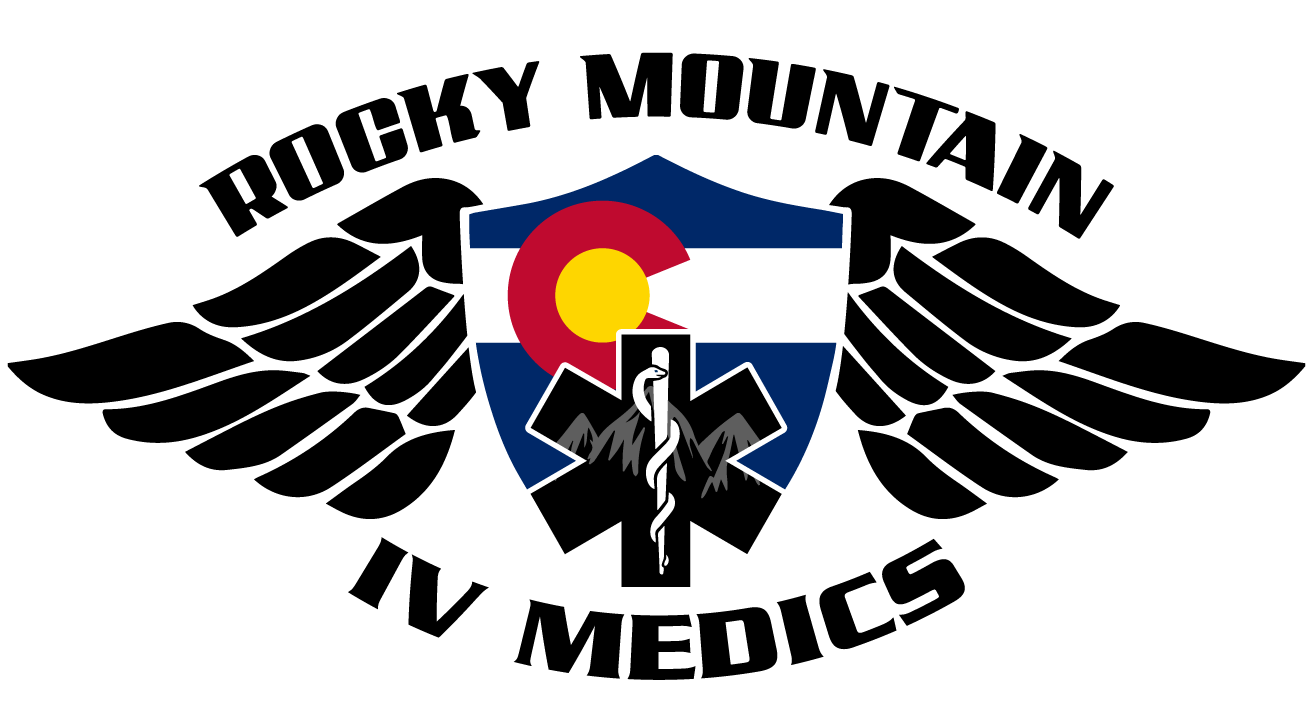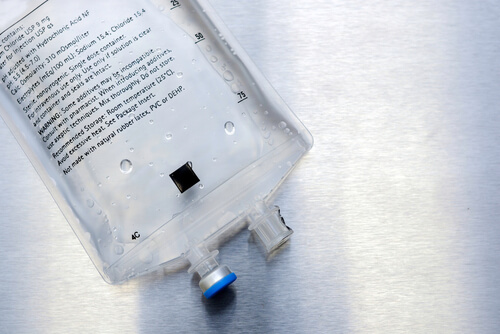Spring Allergy Relief: Tips to Ease Your Symptoms

Unlocking the Benefits of Vitamins for a Better You
March 23, 2020
Illness Prevention: 6 Fast Tips to Protect Yourself & Others
April 21, 2020Spring Allergy Relief: Tips to Ease Your Symptoms

Allergy season is fast approaching, which means many people are bracing for a rough few months ahead. Many people in areas prone to heavy tree pollen and other forms of plant pollen experience a wide range of allergy symptoms that vary in severity. When blooming plants release pollen into the air, your immune system reacts to it as it would to any foreign body — by fighting it. Many people develop cold-like symptoms in April, May, and June as their bodies react to the new allergens.
There’s good news! While the onslaught of spring allergens in the air is inevitable, you can arm yourself with allergy-fighting practices to help ease your symptoms. First, let’s talk about some of the common symptoms that allergies trigger.
What Are Common Allergy Symptoms?
Springtime allergy symptoms include:
- Watery or itchy eyes
- Itchy, runny nose
- Sore, scratchy throat
- Coughing
- Sneezing
- Swelling of the throat or sinuses in severe cases
- Itching near ears, mouth, or eyes
The severity of these symptoms varies from person to person, but almost everyone experiences some form of spring allergies. Many of these symptoms can depend on what element is triggering the allergies in the first place. To understand this more, let’s review a few common causes of allergies.
What Are the Causes of Allergies?
As discussed before, pollen is the number one cause of spring allergy symptoms. Pollen is essentially a tiny grain that trees, plants, and flowers can release. The issue with pollen is that your immune system mistakenly sees it as a threat. Because of this, your body releases histamines into your blood, causing common symptoms like runny nose, itchy eyes, and sneezing.
There are a few other allergy causes that need to be considered. Mold growth inside and outside your home can also trigger allergy symptoms for some people. Dust mites play a role in allergies, especially when they’re stirred up into the air during cleaning. Pet dander can also be another irritant, causing certain types of people to have allergic reactions.
Whatever the cause of your allergies, it’s vital that you understand some of the risk factors that go along with allergy issues, such as hay fever and infections. Later, we’ll go over some of the ways you can treat or prevent allergies, such as IV therapy for allergies.
The Risk Factors That Come Along With Spring Allergy Season
One of the risk factors that come with allergies is developing hay fever. Hay fever comes with cold-like symptoms, sometimes developing into other conditions. It’s important that you avoid letting your allergies worsen into hay fever symptoms, especially during the pollen-rich spring months.
If you continue to experience allergy symptoms or problems with a fever, you may develop issues like ear infections or sinusitis. For example, sinusitis, which is an inflammation of the sinuses, can be caused by prolonged sinus congestion due to allergies. Ear infections can occur similarly to sinusitis, with prolonged inflammation in the ear canal being a root cause.
Other issues, such as asthma, can also worsen with prolonged allergies. And generally, your quality of life will suffer when you constantly suffer from allergies.
These complications make treating your allergy issues even more paramount. Taking medications, getting treatment, and using preventative measures are all ways to control allergies and reduce your chances of having another bad spring allergy season.
Medications, IV Therapy, and Other Ways to Combat Allergies
Fortunately, there are many safe and effective ways to reduce your spring allergy symptoms. Many people use supplements, homeopathic treatments, or oral medications to reduce their allergy symptoms. Common medications include Zyrtec, Allegra, and Claritin. It’s also common to use decongestants to reduce the symptoms of allergies, including stuffy nose, runny nose, and sneezing.
Other people use eye drops to reduce itchiness and swelling in that area. Another treatment method is immunotherapy, which gives you gradual doses of an allergen until your body gets used to it. It’s important to talk to your doctor before taking too many of these medicines, as antihistamines can make you sleepy, affecting work performance and day-to-day life.
At Rocky Mountain IV Medics, we specialize in helping people overcome allergy season through in-home IV therapy. In addition to helping people overcome illness and recover from hangovers, IV therapy is also an effective treatment for allergies. An IV infusion therapy for allergies gives your body the nutrients it needs to combat allergies and operate at peak health. IV treatment will also reduce or eliminate your allergy symptoms, helping you shake off that runny nose or itchy eyes.
Let’s talk about four tips, including IV therapy for allergies, that you can use to reduce your allergy problems.
4 Tips to Ease Spring Allergy Symptoms:
Luckily, there are ways you can ease your allergy symptoms and make sure you are prepared for spring. With these tips, you can prevent allergy attacks and keep any adverse symptoms at a minimum. So without further ado:
1. Keep an eye on your local area’s pollen count
Sometimes the best way to fight allergies is to take preventative measures. During the spring months, plan your outdoor activities carefully so you avoid spending extended periods of time outside when the pollen count is high.
You can easily check the pollen count online. Many weather sites will have pollen counts listed. For example, you can check your local pollen counts on The Weather Channel online or via the National Allergy Bureau website. If you’re especially sensitive to pollen and general air quality, this is an effective way to avoid the worst times for your allergies.
2. Start taking allergy medicine:
If you know that you will be moderately or severely affected by allergens this spring, you can take oral antihistamines or other allergy medicines to prevent your immune system from overreacting to the pollen.
You can ask your doctor for help in determining what antihistamine or allergy medicine is best for you and your symptoms. There are plenty of good ones available, including nasal sprays that work quickly and effectively. Plus, the side effects of allergy medicine are usually minimal and will not affect your daily life.
There is also evidence that local honey can help you reduce your spring allergy symptoms. Check your local farmer’s market to find some great local honey while also supporting small businesses.
3. Allergen-proof your home
While it’s tempting to leave your windows open when the weather gets warmer, doing so allows pollen and other allergens to enter your living space and stay there for days. To prevent this, keep your windows and doors closed during high pollen conditions, and make sure to vacuum your carpets and floors frequently.
You should also clean off any dust that is lingering on your furniture or blinds — this will go a long way in helping you avoid allergy problems in your home. Another excellent investment is an improved air filter or a standalone air purifier appliance. This can better clean and recirculate your home’s air, allowing you to rest easier in a clean and allergy-free home space.
4. Consider IV therapy
For maximum allergy relief, we offer in-home IV therapy along with IV vitamins and other treatments to help allergy sufferers in the Denver area. Our IV therapy for allergies eases common symptoms by delivering vitamins and minerals directly into your bloodstream — all from the comfort of your home.
IV Therapy is a safe and effective way to ease allergy symptoms and potentially gain long-lasting relief from seasonal allergies. At Rocky Mountain IV Medics, we offer IV therapy for allergies with several crafted packages, such as the Myers’ Cocktail. This IV is great for treating acute allergy problems and assisting you with general wellness.
Contact Rocky Mountain IV Medics for Colorado IV Therapy
This allergy season, take preventative measures to fight symptoms with IV therapy for allergies from Rocky Mountain IV Medics. We serve anyone within a 20-mile radius of Denver. Just give us a call or text, and one of our nurses or paramedics can be on their way. If you live in the Denver area and want to schedule an IV for allergies, contact us online or call or text (720) 987-2155 today!
Rocky Mountain IV Medics offers IV therapy for allergies and other ailments from 8 a.m. to 8 p.m.

